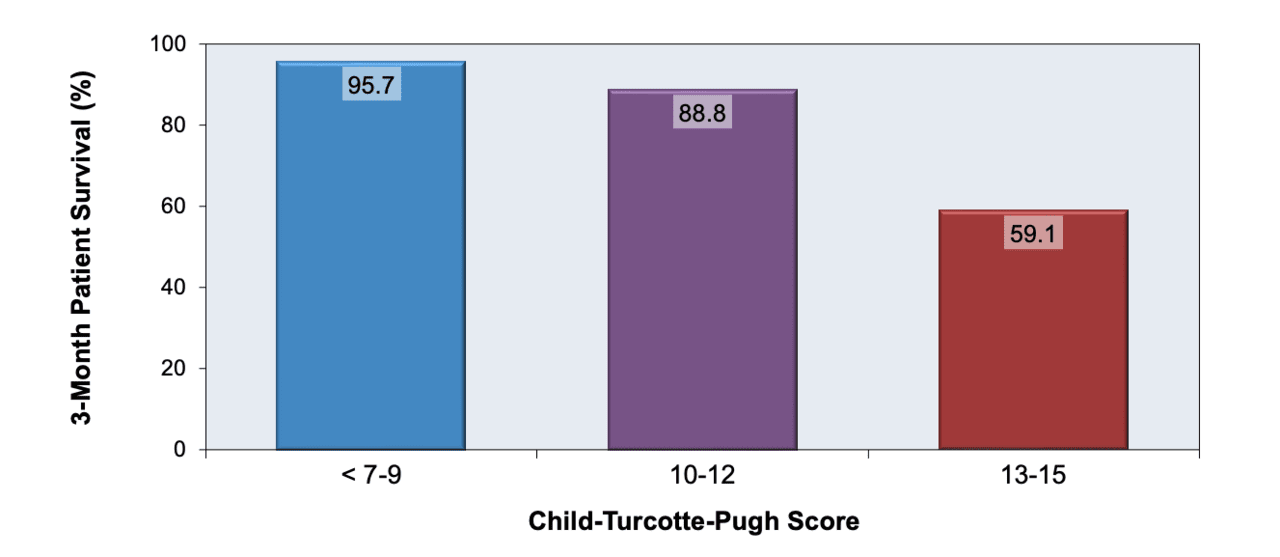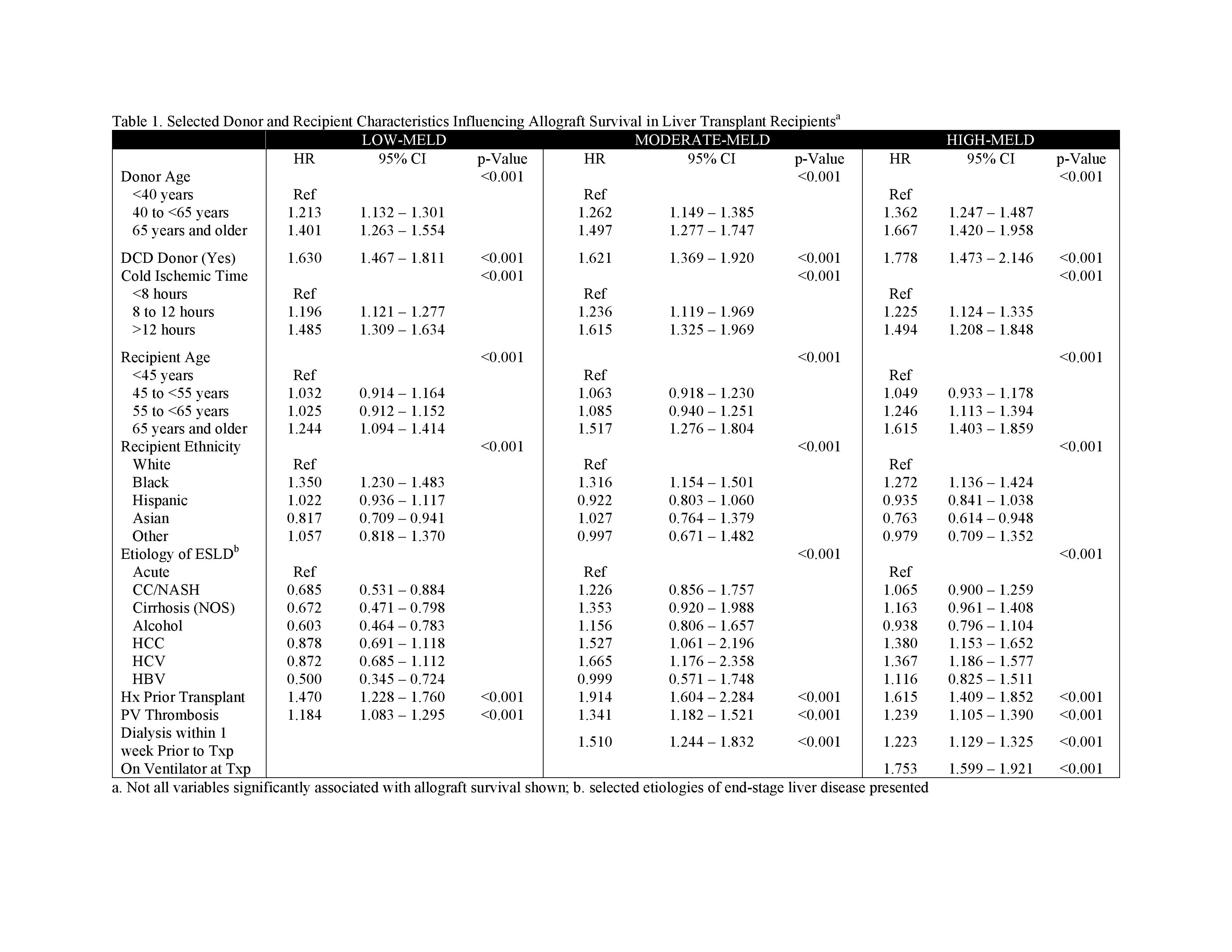

The cut-off point of 10 in MELD score is known to be associated with a greater than 6% three-month mortality in end-stage liver disease. High score is defined as MELD score ≥ 10, while the low score is defined as < 10. Patients included in the study were age 18 years and older and stratified into two groups based on their MELD score in the first 24 hours of admission (low-score vs. The patients' electronic health records were analyzed on hospital admission and during the patients’ hospital stay by the study team. We retrospectively analyzed patients diagnosed with COVID-19 between March 2020 and July 2020, who were diagnosed COVID-19 positive by nasopharyngeal swab using the reverse transcription polymerase chain reaction (RT-PCR). This project was a single-centered retrospective observational study performed at JFK Medical Center, Atlantis, Florida, USA. This study aims to evaluate the potential for the MELD score - in the first 24 hours of admission - in predicting in-hospital mortality, as well as secondary outcomes of hospital length of stay and ICU length of stay.

We chose to explore the MELD score in COVID-19 positive patients as it is a dynamic model, based on the multiple parameters, including how effectively the liver excretes bile, how well the liver can produce clotting factors, and the current function of the kidney. We extrapolate this relationship further between COVID-19 and the applicability of the MELD score as a useful tool for predicting mortality in patients with COVID-19 without known liver disease. The MELD (Model of End-Stage Liver Disease) score has been well validated as a severity index in patients with end-stage liver disease and can be used to predict short-term mortality. The proposed mechanism suggests that the accumulation of inflammatory factors and cytokines results in an overwhelming viremic response and injury to the gastrointestinal system. There is evidence of COVID-19 indirectly or directly affecting the digestive and hepatobiliary systems through a viral inflammatory response. To help reduce the burden on the healthcare system while also efficiently providing the best in patient care, there is a continuous necessity for reliable prognostic indicators for the disease. During this public health crisis, when measures have been taken to halt the viral spread, trends and predictors of disease control are vital to help create an understanding of its trajectory. To date, cases of severe acute respiratory coronavirus 2 (SARS-CoV-2), responsible for causing the illness referred to as coronavirus disease 2019 (COVID-19), continue to pose a real and urgent threat to global health. We propose using the MELD score as an adjunct for risk stratifying patients diagnosed with COVID-19 without prior history of liver dysfunction. Conversely a low MELD score is a very strong indicator of a more favorable prognosis, indicating hospital survival. Patients hospitalized with COVID-19 infection and found to have a MELD score greater than or equal to 10 were found to have a higher mortality as compared to their counterparts. Conversely, there was no significant difference among both groups in the hospital length of stay (LOS) and ICU LOS (p=0.6929 and p=0.7689, respectively). The in-hospital mortality or discharge to hospice rate was significantly higher in the high-score group as opposed to the low-score group (p=0.0014). Patients in the high score group were older in age (p<0.0001) and more likely to have history of diabetes mellitus (p=0.0020), stage 3 chronic kidney disease (CKD) (p=0.0013), hypertension (p<0.0001), stroke/transient ischemic attack (TIA) (p=0.0163), asthma (p=0.0356), dementia (p<0.0001), and chronic heart failure (p=0.0055). Our cohort of 186 COVID-19 positive patients included 88 (47%) women with a mean age of 60 years in the low score group and mean age of 73 years in the high score group. Clinical outcomes were evaluated, including in-hospital mortality, hospital length of stay, and intensive care unit length of stay (ICU LOS). Patients were stratified into low score groups (Model of End-Stage Liver Disease score <10) and high score groups (MELD ≥10). This scientific study is a retrospective cohort study of patients without a known history of liver diseases who were hospitalized with COVID-19 viral infection. Limited data is available for reliable and accurate predictors of in-hospital mortality in patients diagnosed with COVID-19.


 0 kommentar(er)
0 kommentar(er)
